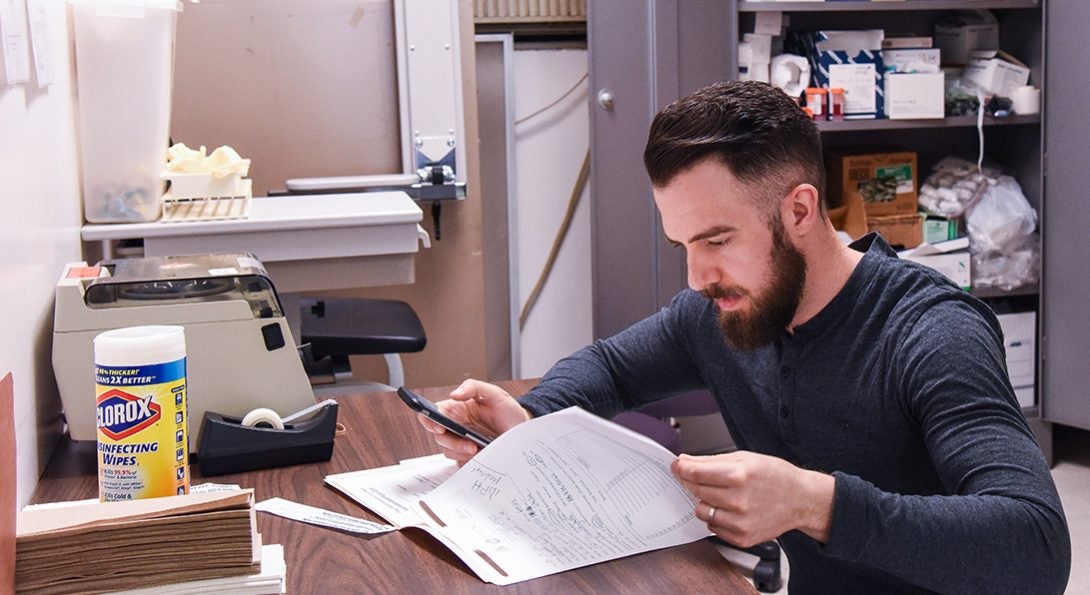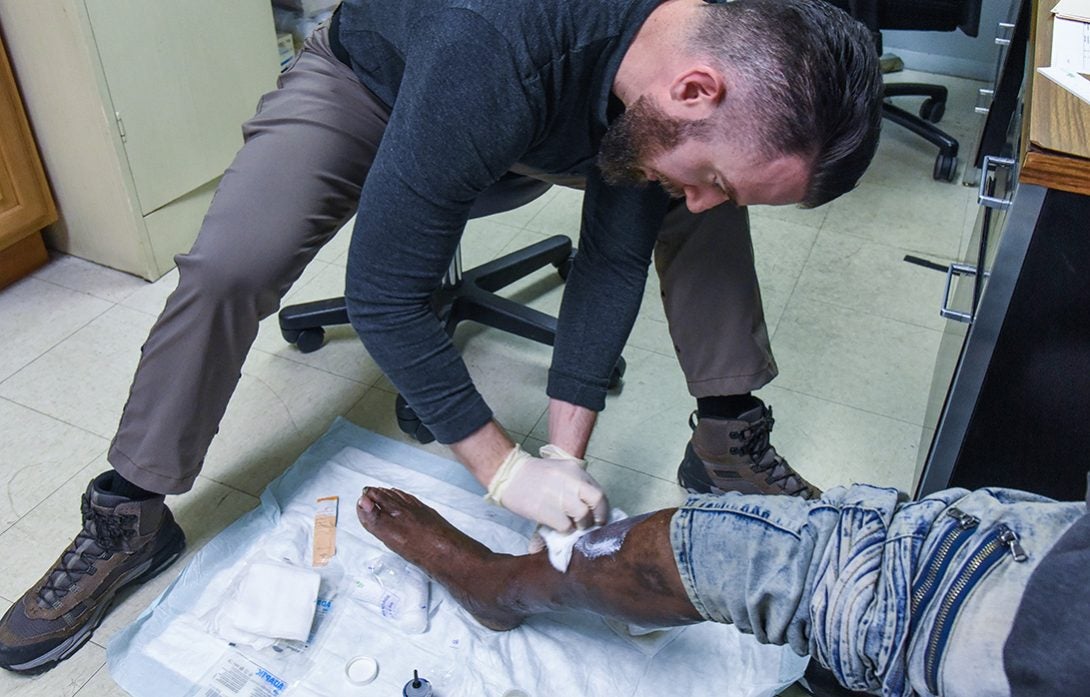Michael Huyck

body copy

I graduated from Lane Tech College Prep High School in 2005 and I was gone a week later to start my basic training in the U.S. Army. That’s how I got into nursing. In the Army, we have a class called Combat Lifesaver. You learn how to put in IVs and other basic medicine. When I was deployed in Iraq, I did that a lot. Over there, it’s 120 to 130 degrees every day. People are wearing body armor and getting dehydrated left and right. I guess I just got good at it. I wanted to help people.
When I got back home, I got my bachelor’s degree and became an RN. I’m the first person in my family to go to college.
I’ve worked at the Jesse Brown VA Medical Center for about eight years. I’m a float pool nurse so I work pretty much every single specialty. I wanted to get my DNP because I want to be in a position to make a change before it becomes an emergency at the hospital.
One thing I do at the hospital is I cover for the wound care nurse when she’s out. I found out there was a new grant to stand up a clinic at one of UIC’s needle exchange sites, the west side Community Outreach Intervention Project (COIP). Because it serves a population of injection drug users, they had a huge issue with wounds.
I’ve been working on wound care there since last September. About 30 percent of the people we see here have the presence of chronic wound that’s been there longer than 30 days, but there’s really no guidance for how to care for chronic wounds in this environment. What we had to do is find the least expensive form of wound care that’s also effective and evidence-based.
For my DNP project, I’ve created a wound care guide for people who inject drugs and developed a formulary of basic supplies that they can use between visits.
The healthcare needs of people who inject drugs are often unmet due to a variety of factors such as poverty. Stigma within the healthcare community against drug use also limits access. We’re trying to change that at the COIP clinic.